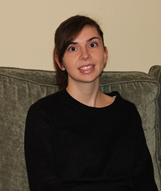Brief Description:
My research – supervised by Dr Ruth Graham, Dr Geth Rees and Dr Mark Casey – considers the impact of diagnostic categories and diagnostic decision-making on women’s experiences of conditions that challenge traditional understandings of femininity. Women with polycystic ovary syndrome (PCOS) form the central basis of the study; PCOS encompasses a broad range of symptoms including excess facial and body hair, alopecia and fertility problems. It is frequently discussed within gendered social contexts and considered a threat to normative understandings of femininity and womanhood.
A socio-historic documentary analysis forms a core aspect of the fieldwork. This sheds light on the evolution and social construction of the PCOS diagnostic category over time, and will also enable me to develop an in-depth understanding of the aetiology and epidemiology of the condition. The other core dimensions of the fieldwork include interviews with GPs, and interviews with women with PCOS. Interviews with GPs will help me to build an in-depth understanding of the factors routinely considered by GPs as indicative of PCOS, and as warranting a diagnosis. Engaging with the patient voice will allow me to explore the impact of diagnostic categories and processes on the identities, understandings and experiences of women with PCOS.
It is hoped that these different dimensions of the study will help to fill a number of gaps in research relating to the experience of PCOS while shedding light on the difficulties and challenges many women face both pre- and post- diagnosis. It may also shed light on whether or not a diagnosis can act as a valuable resource for women, both in terms of managing their condition, and in negotiating some of the stigma attached to it. This research will also contribute to the emerging literature within the sociology of diagnosis – within which PCOS is yet to be adequately considered – by extending knowledge of the importance of socio-historic contexts in how diagnostic categories are applied, and the role of diagnosis in shaping chronic illness experiences.
Before starting my PhD, I completed my undergraduate degree at Newcastle University in Combined Honours in Sociology with Business. I received the award for top academic achievement at the end of each stage of my degree. I also spent some time living and studying in Greece in the year after graduating. I then completed an MA in Sociology and Social Research (also at Newcastle). I have a longstanding interest in the experience of chronic conditions which contravene feminine ideals and realised in the first year of my undergraduate degree that this was an area of research I wanted to pursue.


